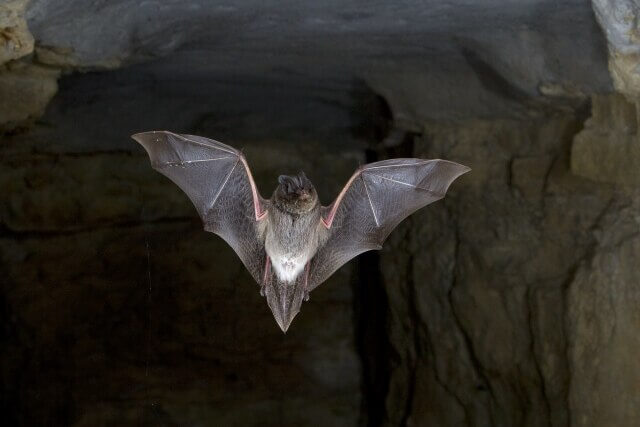
The decline of Britain’s western barbastelle bat, characterised by a 99% drop in populations, can be traced back to the felling of trees for shipbuilding during the early stages of the UK’s empire building, according to research conducted by the University of Exeter and the Bat Conservation Trust (BCT).
The study utilised DNA analysis of bat populations, identifying a “signature” of the past that includes periods of decline leading to increased inbreeding and reduced genetic diversity.
Dr Orly Razgour, a molecular ecologist and conservation biologist at the university, said: “These bats usually roost in mature oak and beech trees, and move around every few nights – so they benefit from areas with substantial woodland cover.
“Our findings reveal that the northern and southern British populations have declined over several centuries, beginning about 500 years ago. This coincides with a period of widespread tree-felling to supply wood for colonial shipbuilding. It is likely that the decline we found was triggered by this loss of woodland – which has continued since that period.”
Distinctive for its large ears meeting in the middle, a flattened face with a pug-like nose, and dark silky fur with white tips, the western barbastelle bat saw its decline initiated around 500 years ago.
The study involved capturing and testing these bats in British, Spanish, and Portuguese forests.
Dr Katherine Boughey, the head of science and monitoring at BCT, said: “This technique is a gamechanger for bat conservation. Until now, we have only been able to look at recent changes in populations, though anecdotal evidence suggests UK bat populations are at historic lows. Now we have evidence for the historic decline of barbastelle but we urgently need similar evidence for other bat species.”
Found in limited areas in southern and central England and Wales, the “very rare” species is currently facing challenges that have persisted over centuries.
The findings, detailed in the Journal of Applied Ecology, shed light on the historical impact of human activities on wildlife populations.
——————————————————————————
At Natural World Fund, we are passionate about stopping the decline in our wildlife.
The decline in our wildlife is shocking and frightening. Without much more support, many of the animals we know and love will continue in their decline towards extinction.
When you help to restore a patch of degraded land through rewilding to forests, meadows, or wetlands, you have a massive impact on the biodiversity at a local level. You give animals a home and food that they otherwise would not have had, and it has a positive snowball effect on the food chain.
We are convinced that this is much better for the UK than growing lots of fast-growing coniferous trees, solely to remove carbon, that don’t actually help our animals to thrive.
This is why we stand for restoring nature in the UK through responsible rewilding. For us, it is the right thing to do. Let’s do what’s right for nature!
Donate today at https://naturalworldfund.com/ and join in the solution!

